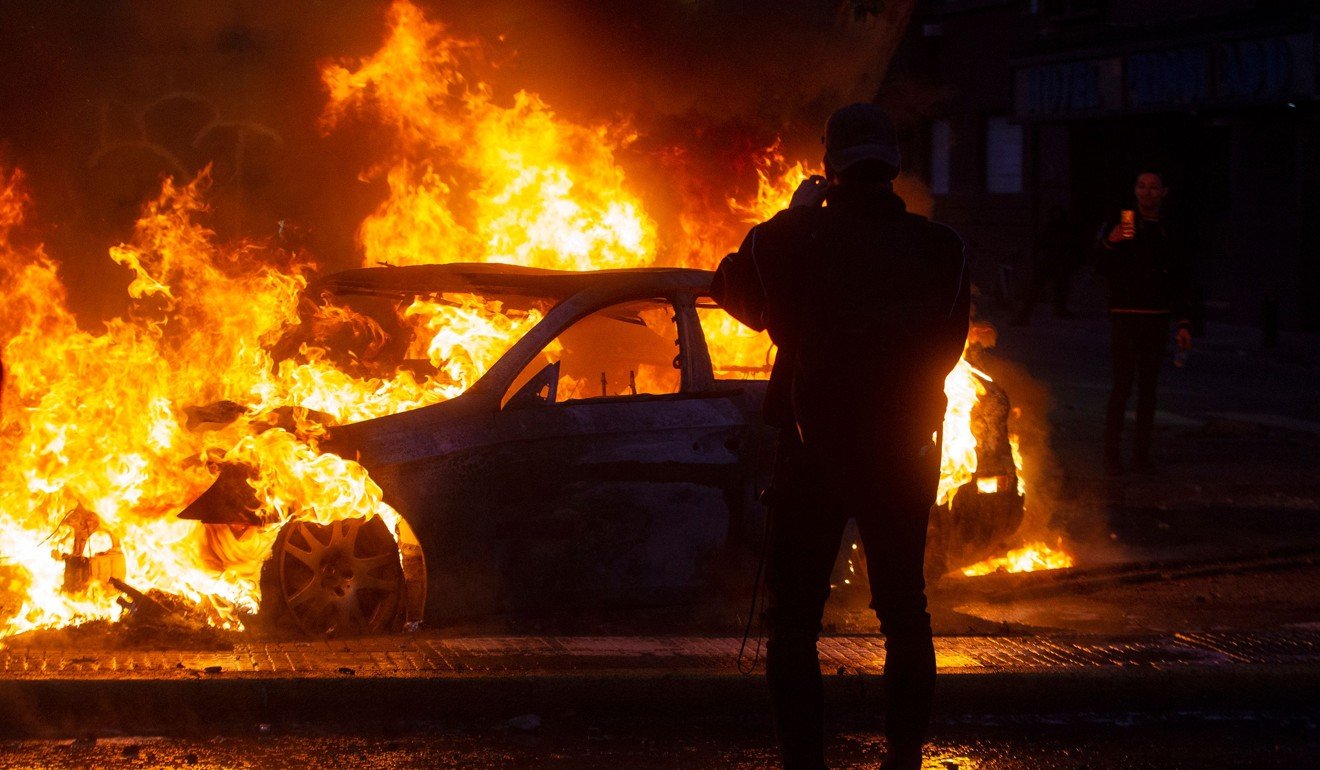
Chile’s protest violence escalates as 3 die in fire at ransacked supermarket
- What started as a mass student protest over an increase in public transport fares morphed into a broader movement for changes to Chile’s economic model
- The first deaths occurred when a supermarket controlled by Walmart was looted, as protests continued despite a curfew

Three people died in a fire in a supermarket being ransacked in the Chilean capital early on Sunday, as protests sparked by anger over social and economic conditions rocked one of Latin America’s most stable countries.
Santiago’s Mayor Karla Rubilar told reporters two people burned to death in the blaze and another later died in hospital, after the huge store controlled by US retail chain Walmart was looted.
They were the first deaths in two days of violent unrest in which protesters have set buses on fire, burned metro stations and clashed with riot police in the city of seven million – despite a curfew imposed overnight until 7am on Sunday.

On Saturday, Chile’s President Sebastian Pinera announced the repeal of a subway fare hike that had prompted violent student protests, less than a day after he declared a state of emergency amid rioting and commuter chaos in the capital.
Soldiers patrolled the streets in Santiago for the first time since the military dictatorship of General Augusto Pinochet ended in 1990, summoned to keep order following protests over a rise in subway fares from the equivalent US$1.12 to US$1.16. Subway service had been suspended in the capital since late Friday.
“I have heard with humility the voice of my compatriots,” Pinera said before announcing on Saturday that “we are going to suspend” the fare hike.
It was unclear if the rollback would end the demonstrations and rioting.
Pinera appealed to people taking to the streets, saying “there are good reasons to do so”, but calling on them “to demonstrate peacefully”.
“Nobody has the right to act with brutal criminal violence,” he said.
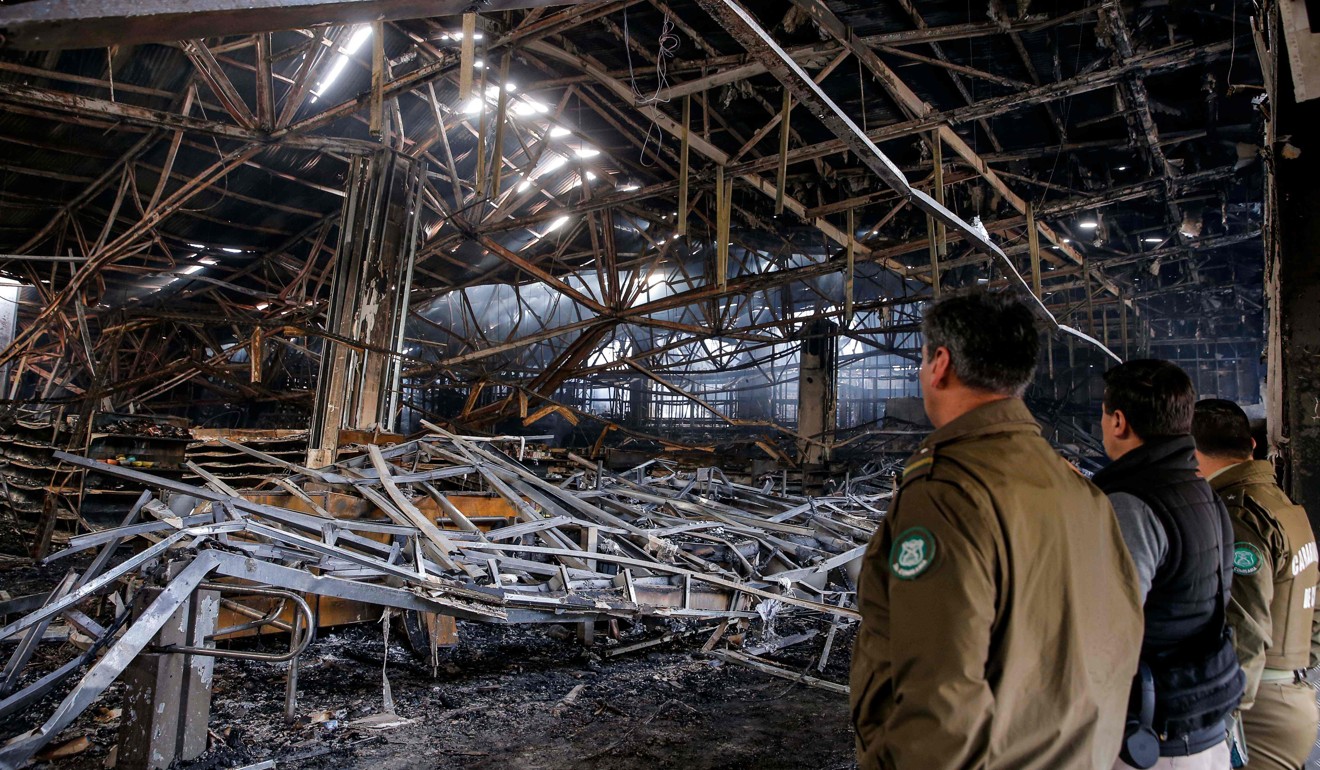
The protest by students began on Monday when hundreds of young people mobbed several metro stations in Santiago, jumping over or dipping under turnstiles in a fare-dodging protest against the 4 per cent increase in fares.
Chile does not produce its own oil and must import its fuel, leading to high prices for petrol, electricity and elevated public transport costs.
The government said the fare increase was necessary because of rising energy costs, the devaluation of the country’s currency and maintenance. But many Chileans are frustrated by rising prices.
By the end of the week the protests had turned violent with thousands of students burning subway stations and damaging dozens of others, and some set fire to a high-rise energy company building. Officials reported 156 police officers and 11 civilians injured and more than 300 people arrested.
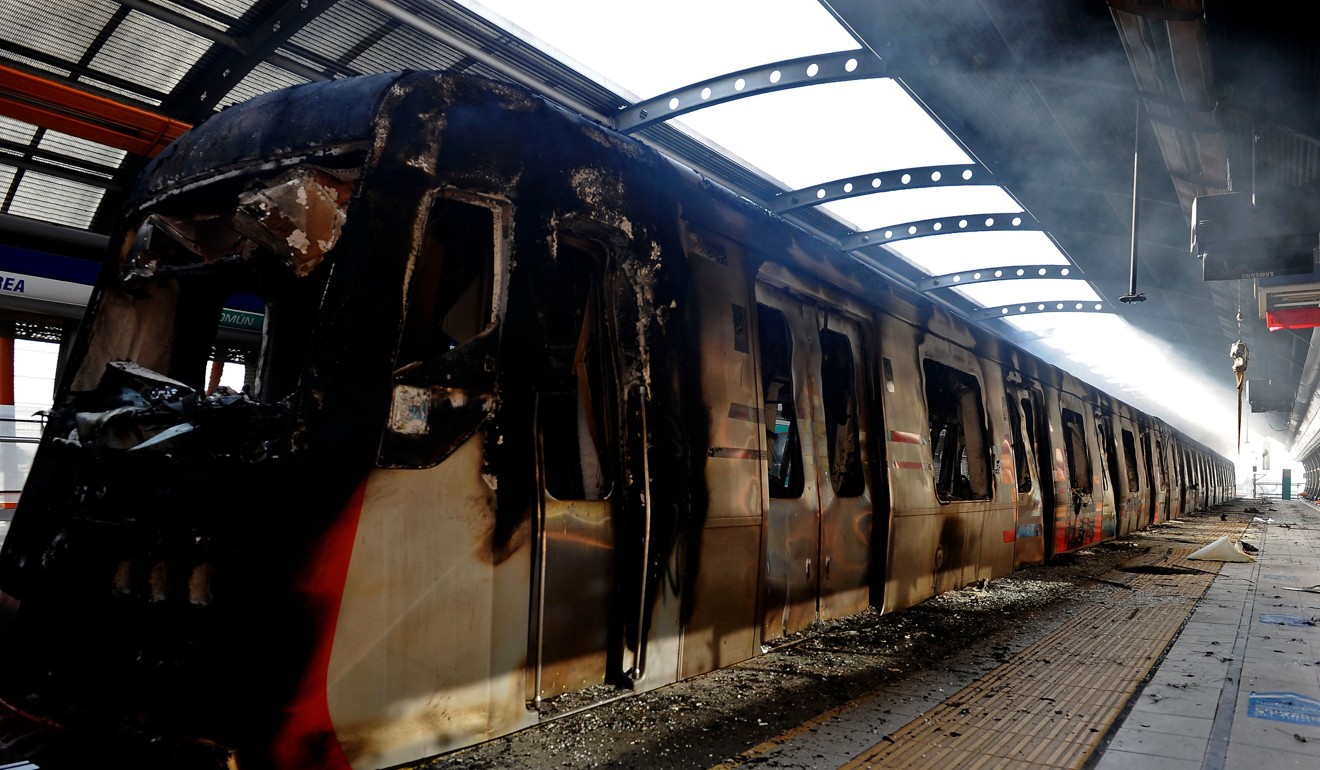
On Friday, the operator of Santiago’s subway system announced the suspension of service in three of its six lines. Later Friday, it announced the suspension of all six, stranding hundreds of thousands of furious commuters.
Authorities said that in all, 78 stations along with infrastructure and equipment had been damaged in a system that has long been a point of pride for Chileans.
The conservative Pinera vowed that those responsible for the violence “are going to pay for their deeds”.
Near midnight, Chile’s conservative president declared a state of emergency in affected areas, allowing authorities to restrict rights to assembly and movement. Soldiers were deployed in the streets.
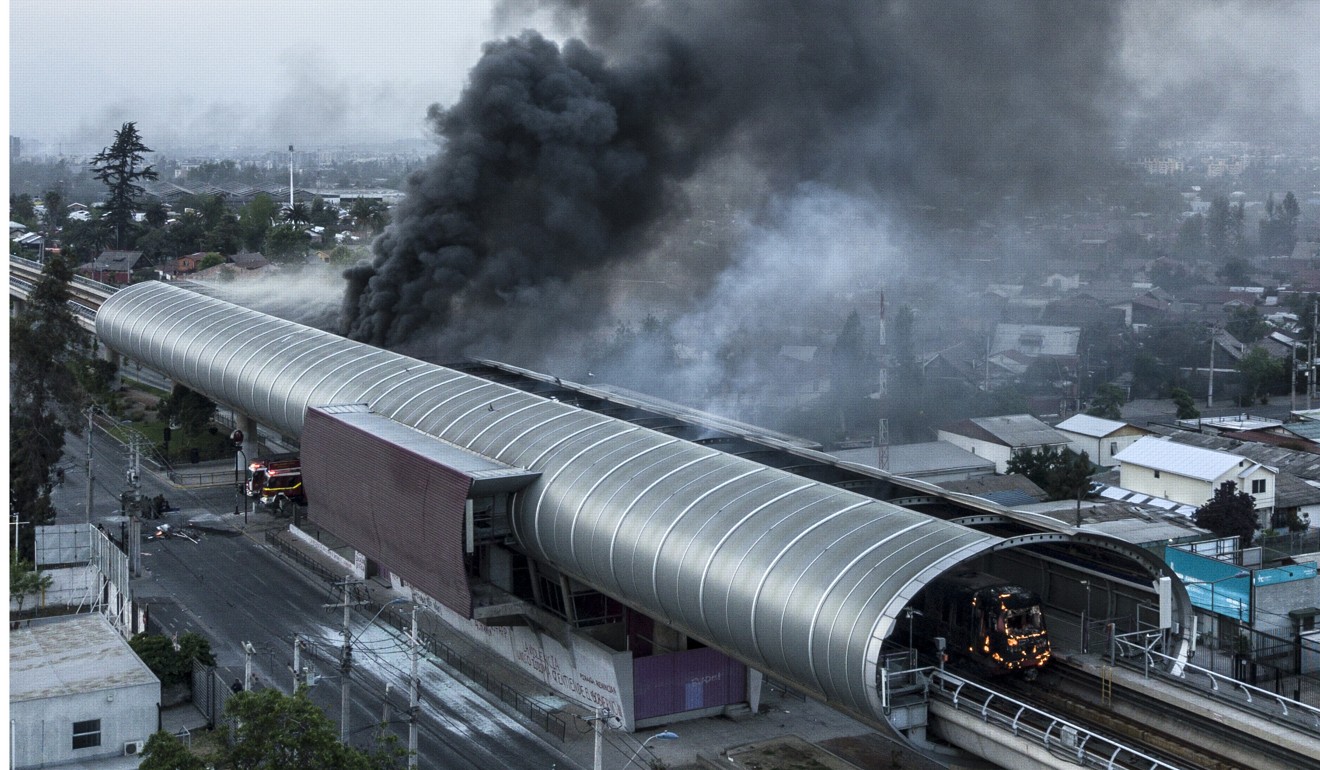
Despite the presence of soldiers and police, thousands of Chileans continued protesting including in cities outside Santiago, not only against public transit fare hikes, but the price of electricity, water and medicines.
Police repressed protesters with tear gas, while protesters had set up barricades and looted businesses.
Despite Pinera’s lifting of the fare hike, subway and public transport services remained suspended late on Saturday, and the state of emergency was still in place.
Until Saturday, Chilean governments of left and right have been wary of bringing soldiers back into the streets since the end of a dictatorship during which thousands of suspected leftists were killed and dissent was ruthlessly crushed.
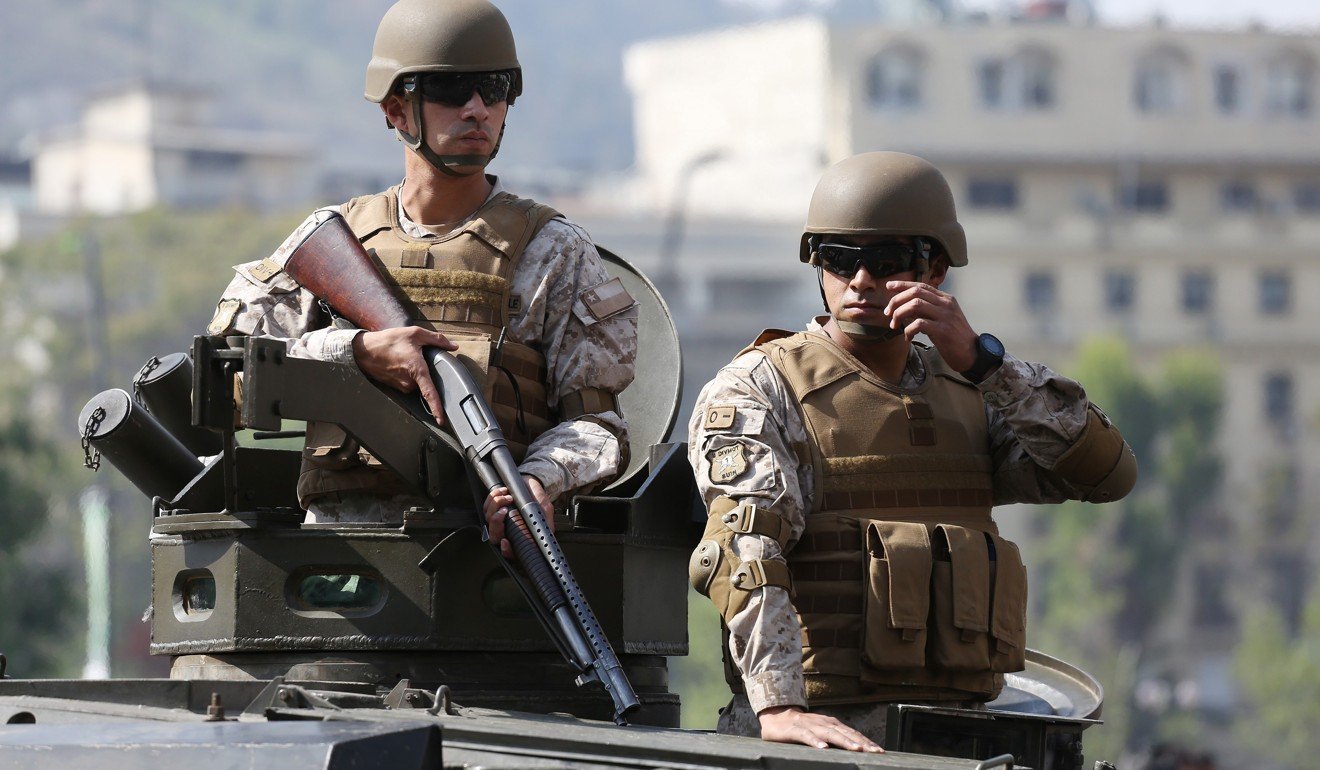
“Pinera’s decision to deploy the military in Chile – a country that experienced a 17-year repressive dictatorship – is troubling and could further destabilise the situation,” said Jenny Pribble, associate professor of political science at the University of Richmond.
“It also sends a message to Chileans that the parties of the right still see the military, and not democratic process, debate, and dialogue, as the ultimate solution to social conflict.”
Additional reporting by Bloomberg